Question of standing committees delayed until late February by Bloomington’s city council, uncertain future next week for local towing law
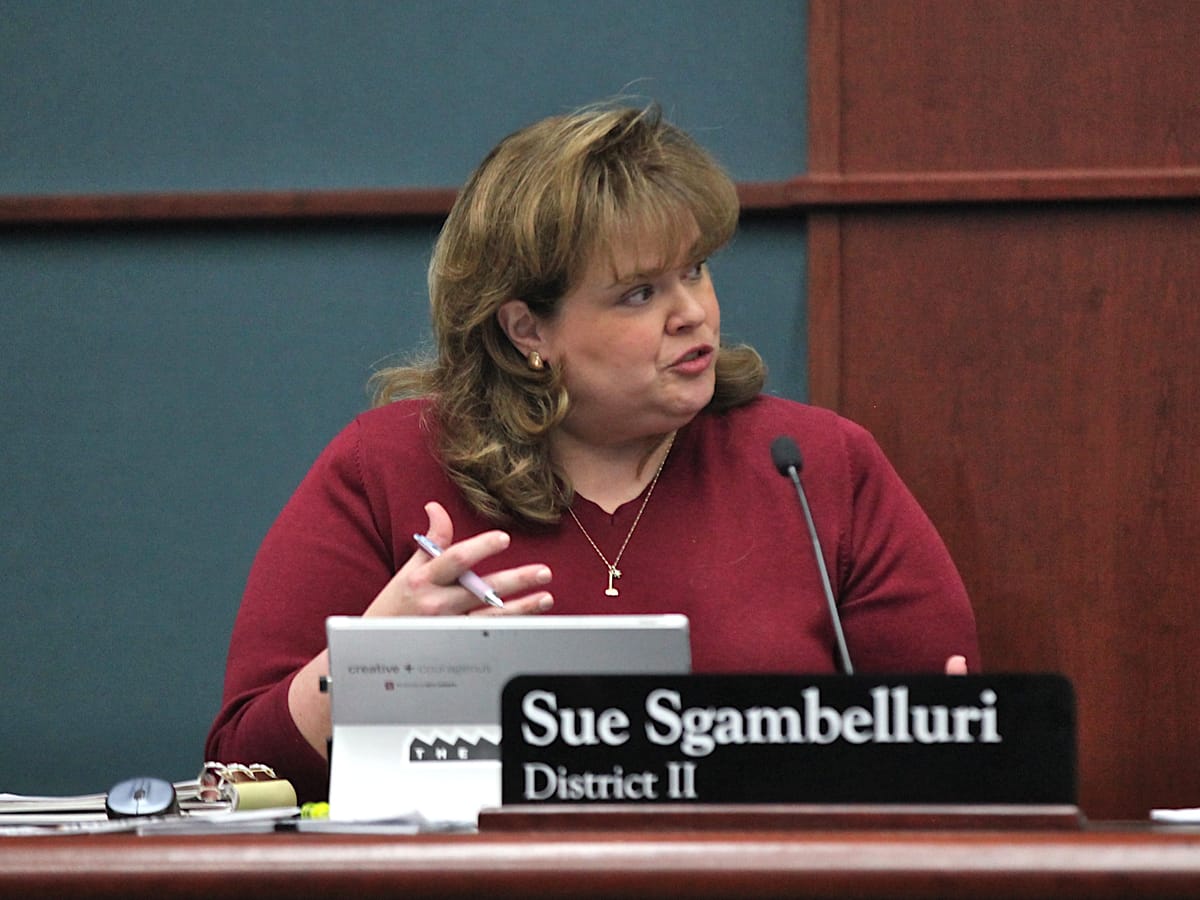
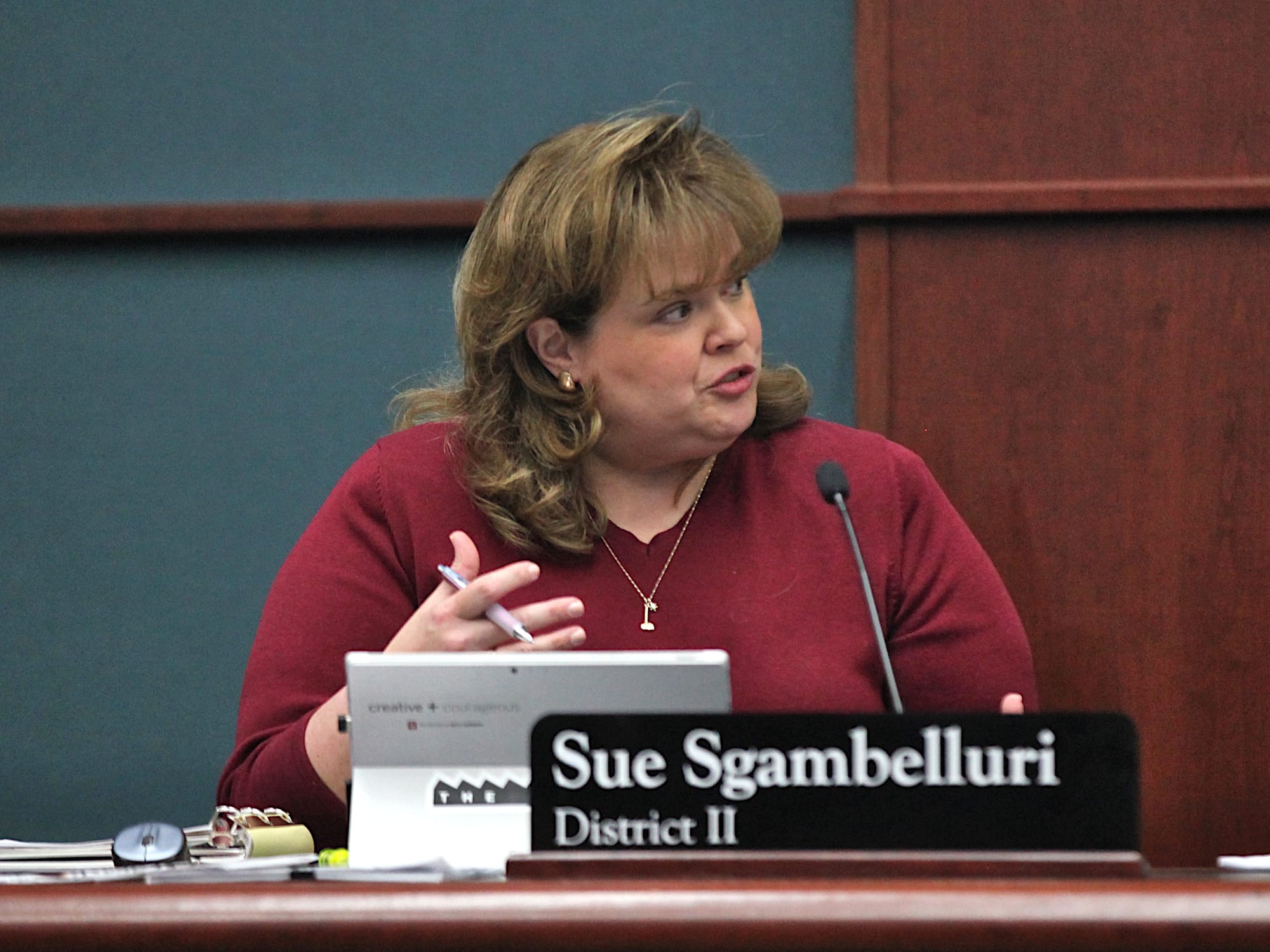
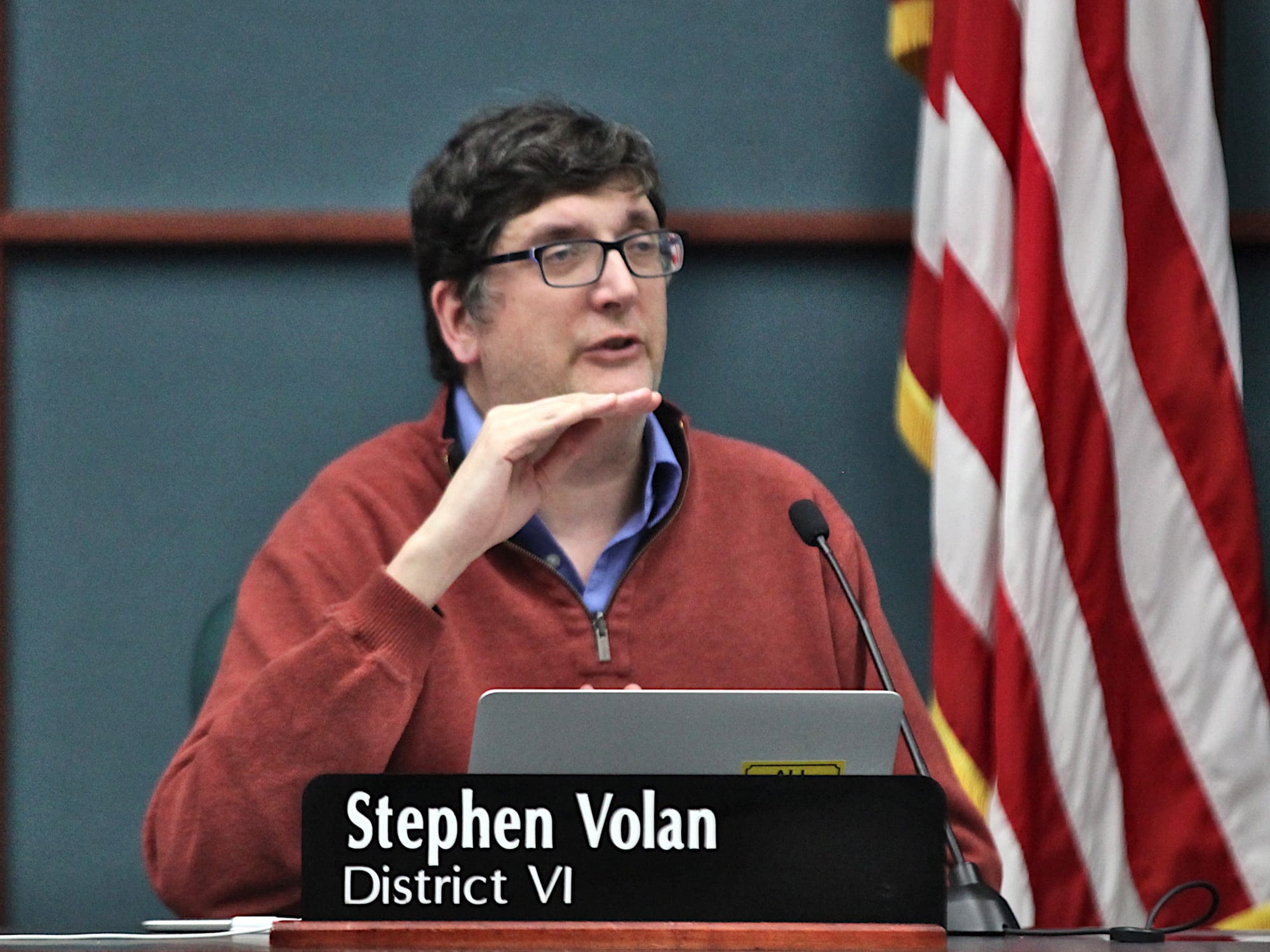
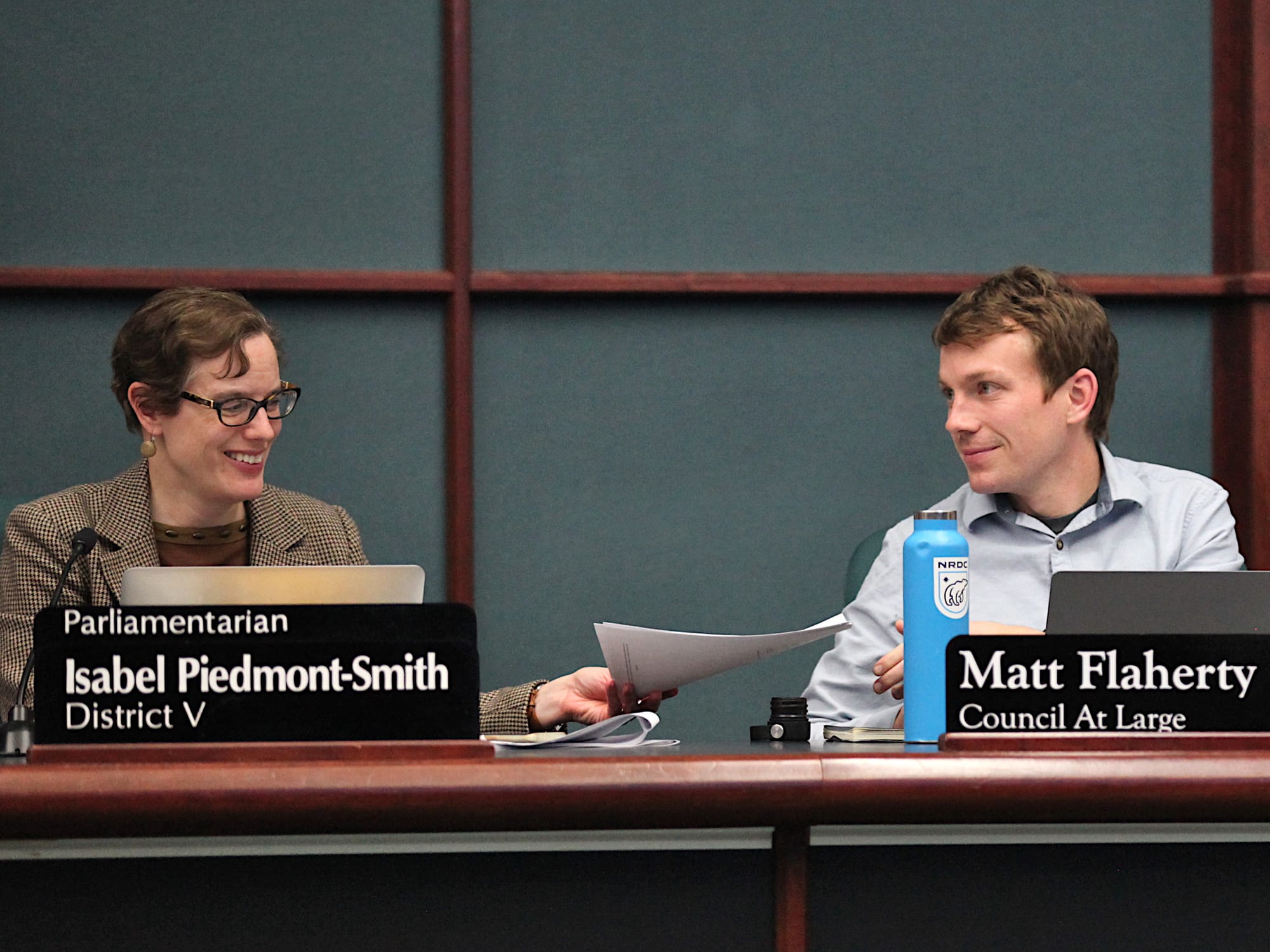
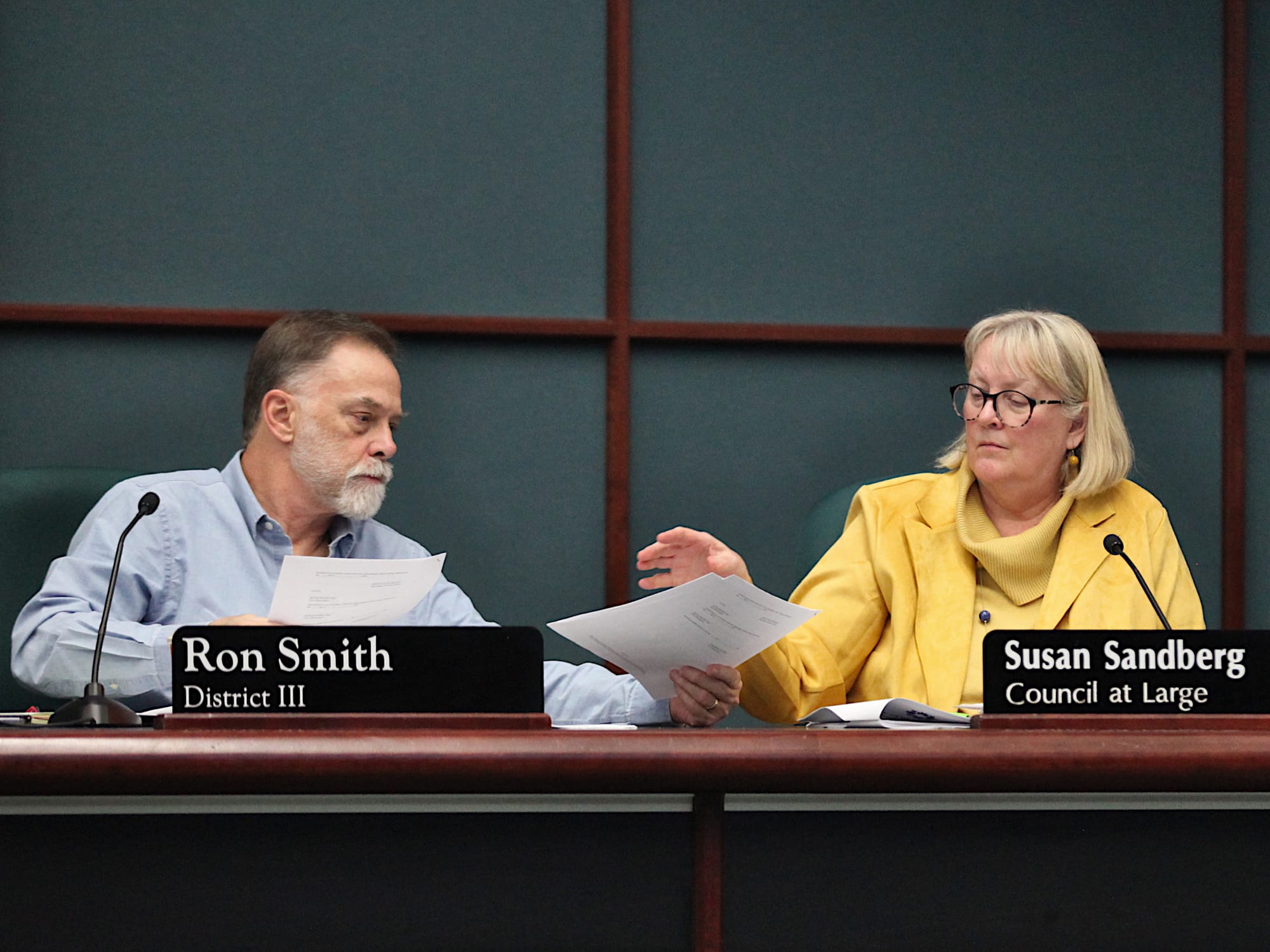
On Wednesday night, Bloomington’s city council voted unanimously to postpone, until Feb. 19, council president Steve Volan’s resolution on establishing several council standing committees.
The unanimous vote on the postponement went smoother than the subsequent discussion of the council’s schedule for next week. That’s when an ordinance regulating non-consensual towing will appear on the agenda for a second reading.
The procedural options for the council’s Feb. 5 action on the towing ordinance include rejection, adoption, postponement, or referral to an ad hoc committee.
On Wednesday, council attorney/administrator Dan Sherman wanted direction from councilmembers on how to portray the towing ordinance item on the the Feb. 5 agenda.
Sherman’s question was resolved by the council in favor of an agenda note. The note will indicate that public commentary will be heard on the towing ordinance, but will also state that the ordinance might be referred to a committee.
The sponsor of the ordinance, Jim Sims, was keen to hold open the possibility that whatever amendments are needed for the ordinance could be assembled by Feb. 5 and that the ordinance could be ready for adoption at that time.
The unclarity that Sherman was seeking to resolve was the result of the legislative process the council followed for the towing ordinance. It’s the system that Volan’s standing committee proposal would change.
The towing ordinance initially appeared on the council’s agenda on Jan. 15—for a first reading. Under local law, no debate or amendment of legislation is allowed at a first reading. At first reading, the council referred the towing ordinance to its committee of the whole, which met on Jan. 22 to consider the new local law.
Appearing at the Jan. 22 committee-of-the-whole meeting were several towing company operators, whose businesses would be regulated by the new ordinance. They raised several concerns. Councilmembers reached an easy consensus that before enacting the law, they needed to hear from the property owners. Those are the people whose interests the towing companies are serving, when they remove vehicles that are parked illegally on private property.
The committee-of-the-whole vote was 0–8. But it was not meant to signal that the council wanted to reject the towing ordinance when it appeared in front of the council for a second reading. Rather, it was meant to indicate that the council is in favor of regulating non-consensual tows, but that the proposed legislation needed more work, aided by input from stakeholders who weren’t in council chambers that night.
Why didn’t the committee of the whole just postpone its consideration to a future committee meeting? It’s because the committee of the whole, under rules of parliamentary procedure, didn’t have that option. The committee of the whole owes a report to the council (itself) at the next regular meeting of the council, which is Feb. 5. The committee-of-the-whole always has just one meeting to consider legislation, before it has to report back to the council.
Under already-existing law, a four-member standing committee has a longer time frame to act. When the council refers an ordinance to a standing committee, the committee doesn’t owe a report to the full council until the second regular council meeting after that. So a standing committee can schedule two committee meetings on a legislative proposal before reporting its recommendation to the council.
Under the standing committee approach, the non-consensual towing ordinance could have been referred to Volan’s proposed committee on sustainability, climate action and resilience. That’s the committee Volan proposes as a liaison to the city’s economic and sustainable development department. That’s the department that would administer the licenses that towing companies would be required to obtain from the city, under the proposed ordinance.
If, on Jan. 15, the council had referred the towing ordinance to a standing committee, the committee could have met to consider the towing ordinance on Jan. 22, just as the committee of the whole did. But the standing committee could have opted to schedule another committee meeting on the towing ordinance, for Feb. 12. That’s because no report would have been owed to the full council until Feb. 19, the second regular meeting after the legislation was referred.
Based on Wednesday’s discussion it’s possible that on Feb. 5 the council will refer the towing ordinance to an ad hoc committee of four councilmembers. There does not yet exist an appropriate standing committee to which the towing ordinance could be assigned.
On Wednesday, Volan’s standing committee proposal was amended by substitution. Volan took a few minutes to review some of the changes. One highlight was a delay in implementation until Sept. 1.
On Wednesday, when the council reached the item on standing committees, Volan indicated immediately that he wanted to postpone the resolution until Feb. 19. Councilmembers were willing to do that on a unanimous vote. So they didn’t subject the proposal to a lot of deliberation.
Councilmember Matt Flaherty indicated his support for the standing committee approach. He described the adoption of standing committees as a kind of innovation, by citing the remarks of Devta Kidd, the city’s director of innovation, which she made at an event earlier in the day. Kidd’s remarks were to the effect that most innovations involve improvements to process. And innovations often result from asking the question: Why do we do things this way?
Councilmember Piedmont-Smith also indicated her general support for the standing committee approach. It’s hard to track and delve into legislation that covers a broad range of subject matter, she said. Standing committees would also allow the council to be more diligent in its oversight of the administration, Piedmont-Smith said. It’s important to have cooperation and coordination with staff and fellow councilmembers, she said.
Piedmont-Smith’s reference to cooperation with staff was an allusion to the initial pushback the proposal had received from city staff, expressed at a work session held on Jan. 10.
Since that work session, Volan has written three separate memos that in which he tries to clarify the proposal and allay staff concerns that standing committees are merely an attempt at a “power grab” by the council. In one of them, Volan apologizes to city staff:
After reviewing the documents, I understand how some staff came to these upsetting conclusions, and regret the alarm that this language has caused. It was unequivocally not my intent to ascribe to Council authority that belongs to the executive. I hope that department heads, personnel in the Mayor’s office, and others who have read these documents will accept my sincere apology for causing such alarm.
Volan’s revised Organizational Plan, omits the earlier version’s citations to city code that give the council the power to impeach staff members. A memo from the city’s corporation counsel, Philippa Guthrie, analyzed those parts of the city code as superseded by state law.
Memos and documents since the standing committee proposal was introduced on Jan. 8 include:
- [Volan’s apology memo]
- [Volan’s response to Terri Porter]
- [Volan’s response to staff questions]
- [Revised Organizational Plan]




Comments ()